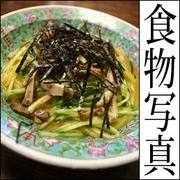Wednesday, Aug. 18, 2010
With help, some refugees find niche
Entrepreneur lends hand via salon, trains manicurists
http://
Nail salons are ubiquitous, as are the intricate, artistic designs women sport after visiting them. Careerwise, being a manicurist is also popular.
For Nang Sie Hom, 41, a refugee from Myanmar living in Japan for 19 years, it is a dream job. She started working as a manicurist at Arusha, which opened in May in Tokyo. The nail salon is named after a city in Tanzania.
"I love it. I used to manicure my nails when I was back in Myanmar," said Hom, who worked at a vending machine factory before she could understand Japanese, and then later mostly at a restaurant.
Arusha was started by entrepreneur Kanako Iwase to support refugees. Currently two women from Myanmar and one from Thailand work there, and each has two to three customers a day. A basic manicure course runs \3,150 and gel nails cost only \2,625, a discount because the shop is newly opened.
Iwase, 35, said she didn't know much about the situation of refugees until recently.
"I kind of started it impulsively," she said.
It all began when Iwase, who has been interested in nonprofit organizations and the fair-trade concept, suddenly in 2008 floated the idea of a nail salon to a friend who sells bead accessories made by refugees.
Iwase was an independent consultant giving business advice to her friend at the time.
"I just said to her, why not open a nail salon (to help refugees)?"
Within a week, Iwase's idea spread and was shared by other friends who run nonprofit organizations to support refugees. They encouraged her to start the business.
"They were so eager. It was a point of no return," Iwase said.
She took two-hour lessons every day for two months at a manicure school to learn the trade. Then she organized an orientation for eight trainee applicants, but more than 20 foreigners showed up, she said.
"I realized there aren't many jobs for them," Iwase said.
Even after getting a visa, refugees in Japan still face financial problems, said Mihoko Kashima, public relations director at Japan Associations for Refugees.
"The lack of language skill is a major problem" to get a job other than physical labor, she said. The government provides Japanese lessons only after refugee status is obtained.
People seeking refugee status can take lessons offered by NPOs during the years of waiting for their applications to be processed, but when they actually start working and look to lay out long-term life plans, their Japanese is not good enough, according to Kashima.
"Many of them work at restaurants or factories," she said.
Kashima added that language shortcomings also prevent refugees from landing normal office work, and thus public authorities should provide more language training.
The "special activity" work visa given to refugees also tends to discourage employers who are uncertain if this implies job limitations, she said.
Iwase taught 17 trainees in Japanese, and when someone didn't understand, classmates helped translate into their language or into French, which is spoken in many parts of Africa.
The trainees are from Angola, Congo, Cameroon, Iran, Myanmar and Thailand, ranging in age from their 20s to 40s.
"It was tough" to teach the manicure trade to refugees partly because of cultural differences, she said.
"For example, I had to teach them that the color must stay on the nails, and not spill out on the skin" because some didn't find it a problem. "But nobody quit the training."
In the end, four became manicurists and Iwase said she got to know more about their situation a few months before opening the salon.
With other refugees, Iwase went to see the Oscar-nominated documentary "Burma VJ," featuring local journalists who covered the antigovernment movement in 2007 at the risk of their lives.
She said she also got to know, through other NPO members and the manicurists, about the protests in 1988 calling for democracy in Myanmar. "Did we ever learn about it in our history class? I don't think so."
Both manicurists from Myanmar lost family members because they were against the military regime, they said.
As for Hom, she fled to Thailand shortly after the 1988 protests. Her mother thought it would be dangerous for her to stay in Myanmar, she said. Hundreds of thousands of people took part in the demonstrations that summer, and the army fired into the crowds. Some people were taken away by soldiers and never seen again.
The junta put Aung San Suu Kyi under house arrest in 1989 because of her quest for democracy.
Hom said she feels safe in Japan, but life is hard financially. "The rent is high, and the living expenses are high. It's not easy to make a living here" (as a refugee), she said.
A 44-year-old manicurist from Myanmar, who declined to reveal her name, agreed. "There are not many jobs" for refugees, said the woman, whose parents were killed. She fled the country after the 1988 protests.
Both manicurists would like to open their own shop in Myanmar if peace returns to the country.
"I also hope one day my mother (now in a Thai hospital) can visit me. I want to show her I'm working hard," said Hom.
With help, some refugees find niche
Entrepreneur lends hand via salon, trains manicurists
http://
Nail salons are ubiquitous, as are the intricate, artistic designs women sport after visiting them. Careerwise, being a manicurist is also popular.
For Nang Sie Hom, 41, a refugee from Myanmar living in Japan for 19 years, it is a dream job. She started working as a manicurist at Arusha, which opened in May in Tokyo. The nail salon is named after a city in Tanzania.
"I love it. I used to manicure my nails when I was back in Myanmar," said Hom, who worked at a vending machine factory before she could understand Japanese, and then later mostly at a restaurant.
Arusha was started by entrepreneur Kanako Iwase to support refugees. Currently two women from Myanmar and one from Thailand work there, and each has two to three customers a day. A basic manicure course runs \3,150 and gel nails cost only \2,625, a discount because the shop is newly opened.
Iwase, 35, said she didn't know much about the situation of refugees until recently.
"I kind of started it impulsively," she said.
It all began when Iwase, who has been interested in nonprofit organizations and the fair-trade concept, suddenly in 2008 floated the idea of a nail salon to a friend who sells bead accessories made by refugees.
Iwase was an independent consultant giving business advice to her friend at the time.
"I just said to her, why not open a nail salon (to help refugees)?"
Within a week, Iwase's idea spread and was shared by other friends who run nonprofit organizations to support refugees. They encouraged her to start the business.
"They were so eager. It was a point of no return," Iwase said.
She took two-hour lessons every day for two months at a manicure school to learn the trade. Then she organized an orientation for eight trainee applicants, but more than 20 foreigners showed up, she said.
"I realized there aren't many jobs for them," Iwase said.
Even after getting a visa, refugees in Japan still face financial problems, said Mihoko Kashima, public relations director at Japan Associations for Refugees.
"The lack of language skill is a major problem" to get a job other than physical labor, she said. The government provides Japanese lessons only after refugee status is obtained.
People seeking refugee status can take lessons offered by NPOs during the years of waiting for their applications to be processed, but when they actually start working and look to lay out long-term life plans, their Japanese is not good enough, according to Kashima.
"Many of them work at restaurants or factories," she said.
Kashima added that language shortcomings also prevent refugees from landing normal office work, and thus public authorities should provide more language training.
The "special activity" work visa given to refugees also tends to discourage employers who are uncertain if this implies job limitations, she said.
Iwase taught 17 trainees in Japanese, and when someone didn't understand, classmates helped translate into their language or into French, which is spoken in many parts of Africa.
The trainees are from Angola, Congo, Cameroon, Iran, Myanmar and Thailand, ranging in age from their 20s to 40s.
"It was tough" to teach the manicure trade to refugees partly because of cultural differences, she said.
"For example, I had to teach them that the color must stay on the nails, and not spill out on the skin" because some didn't find it a problem. "But nobody quit the training."
In the end, four became manicurists and Iwase said she got to know more about their situation a few months before opening the salon.
With other refugees, Iwase went to see the Oscar-nominated documentary "Burma VJ," featuring local journalists who covered the antigovernment movement in 2007 at the risk of their lives.
She said she also got to know, through other NPO members and the manicurists, about the protests in 1988 calling for democracy in Myanmar. "Did we ever learn about it in our history class? I don't think so."
Both manicurists from Myanmar lost family members because they were against the military regime, they said.
As for Hom, she fled to Thailand shortly after the 1988 protests. Her mother thought it would be dangerous for her to stay in Myanmar, she said. Hundreds of thousands of people took part in the demonstrations that summer, and the army fired into the crowds. Some people were taken away by soldiers and never seen again.
The junta put Aung San Suu Kyi under house arrest in 1989 because of her quest for democracy.
Hom said she feels safe in Japan, but life is hard financially. "The rent is high, and the living expenses are high. It's not easy to make a living here" (as a refugee), she said.
A 44-year-old manicurist from Myanmar, who declined to reveal her name, agreed. "There are not many jobs" for refugees, said the woman, whose parents were killed. She fled the country after the 1988 protests.
Both manicurists would like to open their own shop in Myanmar if peace returns to the country.
"I also hope one day my mother (now in a Thai hospital) can visit me. I want to show her I'm working hard," said Hom.
|
|
|
|
|
|
|
|
アムネスティ難民チーム 更新情報
-
最新のアンケート
-
まだ何もありません
-
アムネスティ難民チームのメンバーはこんなコミュニティにも参加しています
人気コミュニティランキング
- 1位
- 大人のmixi【おとミク】
- 6463人
- 2位
- 食べ物写真をつい撮ってしまう人
- 19245人
- 3位
- 写真を撮るのが好き
- 208301人













![緒方貞子 [コミュニティ]](https://logo-imagecluster.img.mixi.jp/photo/comm/25/72/922572_129s.jpg)










